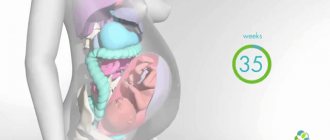There are no children who never get colds. ARVI is the most common infectious disease found in children of all ages. As a rule, a cold does not pose a great danger to a child if the necessary measures are taken to treat it in a timely manner. At the same time, unpleasant symptoms may appear, for example, vomiting during ARVI, accompanied by poor health, nausea and diarrhea. Vomiting is a protective reflex, but such a reflex depletes the baby’s body, takes all his strength, and can lead to dehydration, which is unacceptable at any age. Next, the causes of this phenomenon during colds will be discussed in detail, and methods for solving the problem will also be presented.
What you need to know about colds and flu?
First, we should talk directly about the cold itself and other respiratory viral infections. The disease is characterized by the presence of a large number of different symptoms: cough, runny nose, sore throat, dizziness, nausea, etc.
The immunity of children is not yet as strong as that of an adult, so it is susceptible to attacks from all kinds of infections. Colds and flu are most common during cold periods of the year, since the most favorable conditions are created for the spread of the virus. At this time, it is important to protect your child from infection by taking preventive measures, protecting him from social events and contact with sick children.
Causes of vomiting in children
As you know, vomiting occurs for various reasons:
- Intestinal infections.
- Food poisoning.
- Disturbance in the functioning of the digestive organs.
- Stress and fatigue.
- The presence of a foreign body in the body.
With all this, this phenomenon can also occur with ARVI. In all these cases, vomiting is a sign of intoxication of the body, which is what happens with influenza and other infectious diseases.
Experts note that nausea and vomiting during ARVI in a child are common manifestations, so you should not be too alarmed by their occurrence. Signs of vomiting against a background of elevated temperature can be symptoms of both dangerous pathologies and not very dangerous ones. The fact is that harmful substances appear in the body that negatively affect the human immune system. The virus multiplies inside the body, penetrates the central nervous system, provokes a loss of strength, general weakness, after which it begins to poison the internal organs.
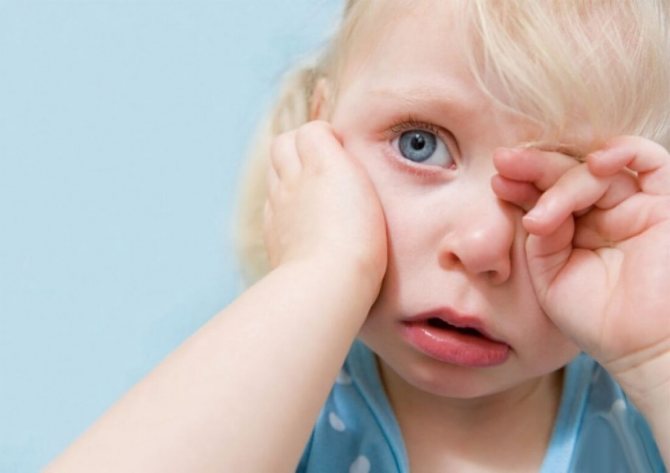
In addition, vomiting can occur simply due to the child’s high body temperature or its sudden rise. As a rule, this phenomenon does not recur, even if the temperature does not decrease.
Nausea and vomiting during and after the flu in children and adults – About colds
Colds or flu are one of the most common respiratory diseases that primarily affect the upper respiratory tract. Often during illness, people begin to suffer from nausea and vomiting.
In such cases, doctors advise consulting a doctor and at least undergoing an examination and consultation.
Nausea during a cold may indicate a number of other pathologies. If the cause is not identified promptly, the patient may experience complications that will require longer and more expensive treatment.
Vomiting during colds and flu: nausea, intoxication and temperature
Intoxication due to flu or colds is observed quite often. This phenomenon is a side effect of the immune system, which thus tries to eliminate the lesion. Blood washes the affected tissues, removes decayed pathogenic microorganisms and dead leukocytes.
Influenza is characterized by a severe form of intoxication, since viruses, when they enter the body, begin to multiply very quickly and in large quantities.
The body needs great strength to cope with the disease and protect the body from viruses.
With viral activity, the patient usually experiences a short-term increase in temperature to 39-40 degrees. If class A viruses enter the body, the fever subsides on the fifth day or earlier.
If the class B virus is active, the patient's fever lasts up to nine days. When parainfluenza viruses are the causative agents, the temperature rises slowly and on the fourth day the readings can be 38-38.5 degrees.
Signs of intoxication of the body with influenza
In simple terms, intoxication during the flu or a cold is a common poisoning that is caused by the accumulation of toxic substances in the body.
The degree of intoxication depends on the severity of the disease, the age of the patient, and the presence of additional diseases. This condition is not a complication after the flu, but a consequence of the struggle to restore a healthy state of the body.
To support the functioning of the immune system and avoid the formation of toxic substances, the doctor prescribes antiviral drugs in the first days of influenza illness. This helps avoid the appearance of symptoms of intoxication and speed up recovery.
When intoxicated, the patient experiences the following symptoms:
- Nausea and vomiting;
- Headache and heaviness in the head;
- Muscle fatigue, weakness, pain and aches in the joints;
- Loose stools and diarrhea;
- Dizziness, heart rhythm disturbances, blood pressure surges;
- The body becomes dehydrated;
- Sleep is disturbed and insomnia appears;
- Kidney and liver diseases worsen;
- Lethargy, apathy, loss of strength;
- Increased sweating.
The danger of poisoning from the flu or cold is that viruses have the ability to penetrate the central nervous system, which is why the patient may experience problems with the cardiovascular system and brain. As a result, the patient develops symptoms such as nausea, vomiting, headache, and dizziness.
This condition is especially dangerous for young children, the elderly, and patients with a severely weakened immune system. If intoxication occurs in infants, the condition can cause kidney failure, coma, or in severe cases, death.
The fact is that poisoning puts a lot of strain on the kidneys and liver, which are responsible for removing toxins from the body.
Therefore, if newborns have congenital defects of these organs, when the first symptoms of influenza appear, it is necessary to seek medical help.
Source: https://medicare59.ru/orvi/toshnota-i-rvota-vo-vremya-i-posle-grippa-u-detej-i-vzroslyh.html
Useful rules
Before taking any medications, you should know a few basic but effective rules:
- It is advisable to drink as much fluid as possible; it is better to drink warm drinks, since cold liquids irritate the stomach.
- Drink fluids often, but in small portions, slowly.
- Pay attention to the color of your urine. If the color remains dark yellow, you should continue treatment; if it is clear, your child is on the road to recovery.
- You should maintain bed rest and refuse to visit an educational institution or kindergarten.
- As for food, it is better to start restoring the body with low-fat foods and carbohydrates.
By following these simple rules, you can quickly cure your child of a cold and prevent such an unpleasant phenomenon as vomiting.
Should I take medication?
Vomiting in a child after an acute respiratory viral infection is a common occurrence, so do not panic and start drug treatment in this case. In addition, the following points should be clearly understood:
- Medicines are not able to stop vomiting during colds; vomiting will continue as long as there is an infection in the body.
- Some remedies can only stop vomiting for a while, but they do not solve the problem at the root.
- Comprehensive treatment is necessary, first of all, for the problem that caused the nausea.
Doctors recommend focusing all your efforts on fighting the infectious infection, after which the vomiting will go away on its own. But if you see that the symptoms do not decrease and your health condition is only worsening, you should urgently seek medical help.
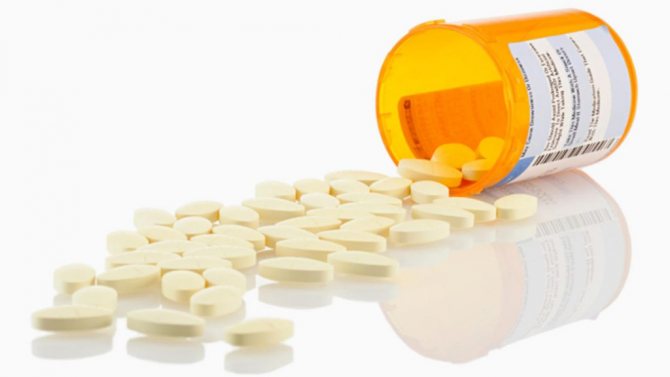
It is also worth giving children medications that strengthen the immune system. In addition to pharmaceutical products, appropriate food products will also help: fresh vegetables, fruits, and some dishes based on natural ingredients.
Causes
Most of the prerequisites for vomiting are related to the state of the digestive tract: from the entry of a foreign body into the esophagus, which cannot be coughed up for a long time (typical of a child under one year old), to food poisoning or exacerbation of diseases of the gastrointestinal tract. It is possible to give an answer to why the child started vomiting only after studying the associated factors and the nature of the vomit. Among the particularly obvious causes of a gastroenterological nature are:
- acute gastritis;
- bile duct dysfunction;
- liver diseases;
- acute appendicitis.
Infectious diseases can also cause vomiting, and they may not even be accompanied by fever. The urge to cleanse the stomach is a frequent symptom of intoxication of any nature, so it can occur during the flu, during a helminthic infestation, and even during long-term treatment with antibiotics. An additional nuance is an allergy to medications that irritate the gastric mucosa, which provokes a gag reflex.
Separately, doctors note the influence of psychogenic factors and diseases characterized by disorders of the nervous system. A sudden attack (from the point of view of the health of the gastrointestinal tract and the “purity” of the diet – causeless) can be provoked by:
- strong excitement;
- stress;
- meningitis;
- concussion;
- increased intracranial pressure.
No temperature
If the stool is normal, there are no symptoms of a viral disease, but weakness is observed, there are complaints of headache or dizziness, and neurological abnormalities are possible that provoke pressure on the posterior part of the brain. Some of these conditions are caused by congenital disorders acquired during the formation of the fetus or as a result of birth trauma. So, in case of cerebral pathology, vomiting is observed in a fountain. If we consider acquired neurological disorders, these may be:
- head injuries, including concussion;
- meningitis;
- brain tumors.
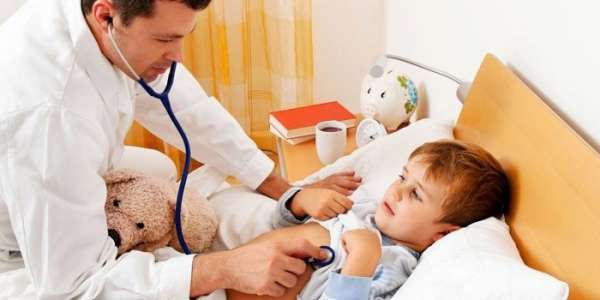
No fever or diarrhea
In diseases of the nervous system, after experiencing a psycho-emotional breakdown, severe shock, or a sharp jump in arterial or intracranial pressure in a small child, doctors do not deny functional vomiting. In infants, everything is often limited to copious regurgitation, especially after feeding, since the digestive tract is not yet perfect. In older children, the cause of such a functional reaction is an unstable psyche - neurotic vomiting can occur in response to:
- punishment;
- compulsion;
- quarrel.
Separately, doctors distinguish psychogenic vomiting, which occurs during force feeding when the child refuses food. There are no health problems. All these cases are not symptoms of serious pathologies and they mostly disappear on their own as the nervous system develops, but they can also be observed in a teenager. Treatment in such a situation should be aimed at normalizing the psycho-emotional background, often requiring a visit to a psychologist.
Vomiting and diarrhea in a child without fever
Attempts by the body to cleanse the stomach that are not associated with infections and viruses may be associated with diseases of the digestive system and metabolic disorders (especially with diabetes). Often without fever, but with diarrhea, vomiting is symptoms of poisoning or an allergic reaction to certain food components: gluten, lactose, glucose. Rejection of fruits and vegetables is possible, especially in children. An active cough during exacerbation of bronchitis also provokes the onset of the process.
Frequent vomiting
An incessant urge to cleanse the digestive tract, ending in a positive way, can be a characteristic symptom of the presence of parasites. This process is characteristic of giardiasis: constant spasms of the digestive organs lead to the release of intestinal contents every minute, which can last a whole day. As the stomach is cleansed, bile begins to leave the body, and the child may lose consciousness due to dehydration and endless attacks. If the baby’s condition does not improve within 24 hours, you should urgently call an ambulance.
Frequent vomiting is also possible in the following cases:
- severe poisoning;
- acute gastrointestinal diseases (mainly after eating);
- problems with the endocrine system.
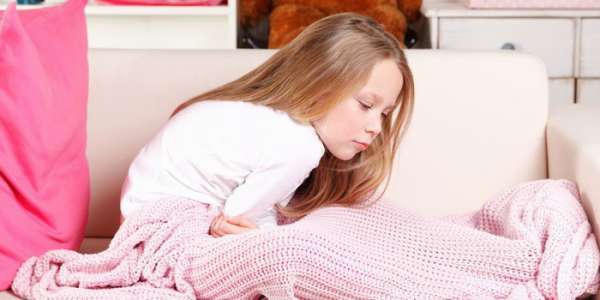
The child is vomiting and has a stomach ache, no fever
If the attack is continuous, it may be associated with helminthic infestation or be a sign of appendicitis (pain will appear to the right of the navel). Particularly severe causes of vomiting in children without fever, but with abdominal pain:
- exacerbation of ulcers;
- erosive gastritis;
- polyposis
Green color
Cholecystitis, pancreatitis, gastritis and even reflux disease are the most obvious reasons for the release of green vomit. Attacks may be frequent, and therefore the child gradually loses weight. The acquisition of a clear green tint in the released stomach contents can be explained not only by the presence of bile in it, but also by the recent consumption of spinach, dill, and other products of a similar color.
With fever without diarrhea
If a child catches a viral infection, which manifests itself as a high temperature on the first day, and the next morning the condition has not improved, the nausea will be permanent and may result in an urge to cleanse the intestines. Long-term preservation of temperature during acute respiratory viral infections and acute respiratory infections is intoxication, which each body fights in its own way. It is especially difficult to tolerate in infancy and preschool age: doctors advise calling an ambulance if, against the background of a rise in temperature that lasts more than a day, vomiting occurs, but the stool is normal.
Night
If the baby wakes up due to strong gag reflexes, and then the stomach is cleansed, there is a risk that the cause is a duodenal ulcer. An additional factor confirming this diagnosis is abdominal pain, which subsides after the masses are released, but for several hours. However, not every case of peptic ulcer manifests itself as a night attack, but only with excessive production of gastric juice and its increased acidity. There are no food particles or additional impurities in the vomit - it is only gastric juice.
With regard to a single urge that occurred at night, especially in a small child, we can assume:
- fright;
- long-term horizontal position for gastrointestinal pathologies;
- evening overeating;
- stuffiness in the apartment.
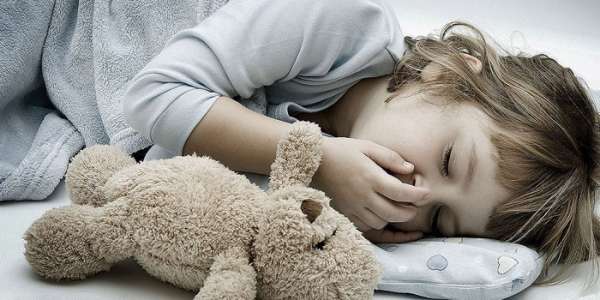
With bile
The appearance of bile in vomit primarily indicates problems with the organs that produce it. In rare cases, this may even be characteristic of an upset stomach, but mainly the problem is in the functioning of the gallbladder, pancreas, and bile ducts. Liver diseases cannot be ruled out. It is necessary to clarify whether the child has congenital pathologies of these organs - against their background, even a slight nutritional error can provoke a gag reflex. This is especially noticeable in children whose diet their parents begin to expand with heavy foods.
Additionally, the appearance of bile is typical for:
- infectious diseases that are accompanied by severe and frequent attacks of gastric emptying;
- acute intestinal infections;
- viral hepatitis.
After meal
If, within 20-30 minutes from the moment of eating, the child notices the appearance of urges or the digestive tract is emptied, there is a risk that the reason lies in overeating or the quality of nutrition. Firstly, this may be a reaction of weak bile ducts to foods that are too fatty: hard on the pancreas and liver. Secondly, the stomach can react similarly if a product of poor quality gets into it, or if there is a history of an ulcer or acute gastritis. Additionally, the child will complain that his stomach hurts or that he has heartburn.
Vomiting with fever
What to do if a child has an acute respiratory viral infection with vomiting and fever? In this case, it is necessary to take into account temperature indicators, as well as the frequency of vomiting. You need to immediately call an ambulance so that the child can be examined by a professional doctor who will make the correct diagnosis and prescribe the correct treatment.
As a rule, for vomiting with fever due to colds, the following drugs are prescribed:
- Tamiflu. It can be prescribed to children over 1 year of age; it is intended to combat infections caused by influenza virus types A and B. It can also be used as a prophylactic agent.
- Kagocel. An excellent antiviral agent that can be used by children aged 3 years and older.
- Cytovir for children. An excellent immunostimulant that is used for respiratory infections. Available in the form of syrup and powder, easy to use for children.
Do not forget to consult with your doctor whether your baby can take one of the above-mentioned medications, because each of them has its own contraindications and side effects. Also, do not rush to start drug treatment if there is a chance to cope with the disease and unpleasant symptoms without the use of drugs.
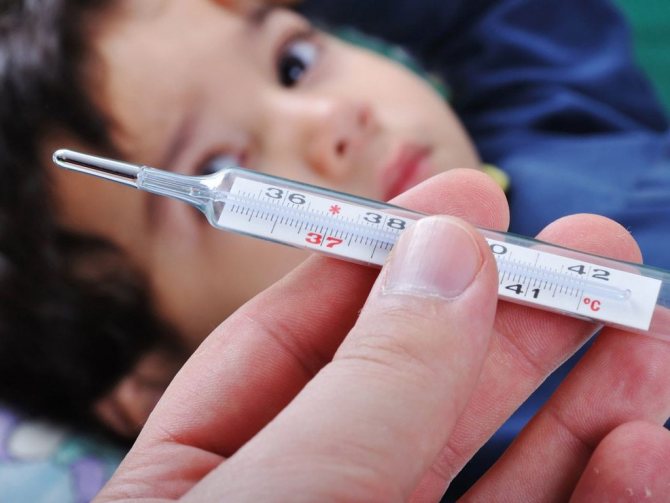
Vomiting in a child without fever and diarrhea: what to do, main reasons
If a child feels sick or vomits, but there is no body temperature or diarrhea, this cannot be called a disease. But this symptom is an alarming sign for the parent, indicating a disruption in the functioning of the baby’s body or the first sign of illness.
Vomiting is an unpleasant symptom, provoked by a person’s unconditioned reflex, which helps to get rid of what prevents him from functioning normally, the cause of which is a variety of diseases. The process occurs with undigested food, through contraction of the pylorus.
Symptoms
Vomiting without diarrhea and without fever may be accompanied by the following symptoms:
- Morning and general lethargy, impotence.
- Frequent salivation and involuntary swallowing.
- Strong heartbeat and shortness of breath.
- Prolonged nausea.
- Sweating.
- Pale skin.
Fever and diarrhea are absent when the baby regurgitates. It occurs both in a month-old baby and in one year, two years and up to three years. More often, regurgitation stops at 7 months.
- Repeated sudden, one-time fountain, no nausea.
- Pale facial skin.
- Tense, hard abdomen.
If the child feels well and has the listed symptoms, there is no need to worry. Regurgitation after eating is a natural phenomenon of the development of the digestive system. Signs of regurgitation independent of food consumption are dangerous: when the skin turns blue, the baby’s temperature drops, and repeated vomiting occurs.
Kinds
The process of eruption through the mouth without diarrhea, temperature, depending on the influencing factor, is divided into types:
- Psychogenic vomiting, the cause of which is problems with the central nervous system in children. The psychogenic form is diagnosed in a teenager, a child of 6-7 years old, and rarely in a small child. This type includes kinetosis - the process of motion sickness in transport: land, water, which results in vomiting.
- The urge to vomit is caused by the presence of gastrointestinal diseases.
- Eruption of stomach contents without fever, caused by poisoning.
Causes
Vomiting without fever or diarrhea indicates the absence of pathological health problems. An exception to the rule may be a traumatic brain injury or problems with the cardiovascular system. Eruption of stomach contents without additional symptoms.
Vomiting is a consequence of a number of diseases, the causes of which are many. The causes of the psychogenic type are mental disorders, rumination, severe anxiety, and stress. Associative (appearance and smell) eruption also occurs through a psychogenic type.
Diseases of the central nervous system: epilepsy, hypoxia, meningitis, migraine, increased cranial pressure are accompanied by the eruption of gastric contents. Foreign body in the stomach, reflux disease, impaired motility and congenital diseases, which result in gastric emptying.
An infectious spectrum disease is always accompanied by fever. Parasites, bacteria and viruses are provocateurs of fever, stomach upset, and diarrhea. The only exceptions are diseases of the urinary system, bronchi and lungs. The disease develops into a chronic form without symptoms.
Vomiting without other symptoms is a consequence of pathologies: lactic acidosis, cyclic gastric eruption syndrome, which occurs periodically with severe migraines, diabetes, and cardiovascular diseases.
Complications
Severe consequences can occur when vomiting with fever. But the presence of such in asymptomatic eruptions of stomach contents is extremely rarely diagnosed.
Regurgitation observed in babies does not cause health complications. Psychogenic types in a child also do not cause consequences. Complications may arise if the association related to this type becomes established and there is repeated vomiting.
Frequent, severe vomiting does not go away without consequences. Dehydration is a sign of complications. Occasional vomiting rarely causes the mass to enter the lung system, causing aspiration pneumonia.
Periodic urges with accompanying intense sweating lead to hyperkalemia.
Diagnostics
Making a diagnosis is not difficult. Vomiting, which is not characterized by fever, loose stools, narrows the list of possible diseases. Examination of the baby and medical history is the first thing the doctor should do. Anamnesis will allow you to find out about the child’s past illnesses and his condition since birth.
The information necessary to make a correct diagnosis is the baby’s age and weight. Next, the skin is examined for the presence of a rash, the neurological condition is assessed - a convulsive syndrome is excluded or confirmed. The abdomen is palpated to check the condition of the muscles.
The parent tells the doctor about the accompanying symptoms: pain in the abdomen, head, pallor, tinnitus and others.
The specialist should tell about its nature: one-time or multiple, unexpected, indomitable, whether it was at night or happened in the morning. It is important to say about frequency: every hour or less.
Did the baby feel better after vomiting, did the condition remain unchanged or did it worsen? Color, consistency, smell, presence of foreign objects, mucus are necessary characteristics.
Taking tests
To obtain additional information, it is worth getting tested. An appointment for testing by a child occurs in rare cases when the doctor doubts the reliability of the data obtained or there is a suspicion of the presence of a certain illness.
The procedure involves donating blood and urine for a general analysis. The blood is examined for the level of reticulocytes, albinum, and coagulation is studied.
What to do
Without fever or diarrhea, vomiting is generally rare. In this case, there is no need for treatment. All you have to do is conduct independent monitoring of the child’s condition. The presence of repeated attacks with deterioration of the condition requires urgent intervention from a specialist.
Home treatment
Treating at home means providing your baby with a gentle diet. The injured gastric mucosa requires special attention. It does not matter whether it was a one-time or continuous vomiting.
To eliminate dehydration, you should give your child water or other liquid to drink. It is better to give rehydron purchased at a pharmacy. Children under one year of age should be given a spoonful to drink every few minutes. After vomiting in a three-year-old, drink rehydron several spoons at the same intervals. From three years of age and older – one and a half, two spoons.
Alternative medicine
Safe methods of treating the consequences of gastric dysfunction include:
- Weak tea, preferably green, eliminates the feeling of nausea and alleviates the condition.
- Making mint and chamomile tea helps with psychogenic vomiting. The baby calms down and his condition returns to normal.
- Currant juice (freshly squeezed) helps relieve nausea.
- Baked quince helps to recover from vomiting and subsequent drinking.
- Boiled, cooled water with the addition of lemon and honey.
Nausea with urge is a case when a child should drink more fluids, including sour juices. The reason for this is the presence of vitamin C in them, which helps restore the body and give strength. Before using this treatment method, consult your doctor. Alternative medicine, which has a different range of herbs, has contraindications for treating children.
Prevention
The post-vomiting state of a child needs plenty of fluids and good nutrition. Especially if a girl or boy is found to be dehydrated. The amount of water needed to drink depends on the age of the child.
You should eat porridge with water, lean meat, and choose dairy products with less fat content. Reduce portions, increase the number of times you eat. Sweets and fatty foods should be excluded from the diet until complete recovery. Fruits, mainly citrus fruits, freshly squeezed juices are a necessity for complete recovery; the body requires vitamins and microelements.
Walking in the fresh air is necessary to improve your well-being. Many diseases occur due to oxygen starvation. Constant work with the psychological health of your child is required if the cause of vomiting was a traumatic event.
For diseases of the gastrointestinal tract and nervous system, you should follow your doctor’s recommendations. High-quality prevention will eliminate negative consequences and strengthen the baby’s immunity.
Source: https://GastroTract.ru/simptom/toshnit/rvota-u-rebyonka-bez-temperatury-i-ponosa.html
Vomiting without fever
Vomiting during ARVI in a child without fever is also a common symptom. This phenomenon indicates that the body is intoxicated, and the virus is still inside. You should not relax and assume that the worst is over, because the infection continues to be inside the body, affecting the internal organs. In such situations, it is worth trying the following remedies:
- Cerucal. The drug has an antiemetic effect, normalizes the functioning of the digestive system, and is approved for children from 2 years of age.
- Motilium. It is used for feelings of nausea and vomiting due to ARVI and colds, as well as for various intestinal disorders.
It is also recommended to rinse the child's stomach by following simple steps. You should give the baby 2-3 glasses of warm water, thereby causing a gag reflex, and repeat the procedure if necessary.
If vomiting continues for a long time, the child’s body becomes dehydrated; in such cases, he should be given a special solution designed to restore fluid in the body.
Do not take any measures on your own, unless urgently required, call a pediatrician at home, who will help establish an accurate diagnosis and prescribe appropriate treatment.
What should parents do - emergency procedures
It is important for adults who do not have medical training to understand that they cannot, do not know how, and should not make a diagnosis, assess the severity of the condition, or treat a child who is vomiting. Their task is to prevent complications and alleviate the condition, nothing more. And to solve it there are several successive stages.
Avoid scheduled and unscheduled feedings
No matter how obvious this point may seem, it still needs to be mentioned. If a baby is vomiting, he should not be fed, and it is especially important to tell grandparents this. It is they who often think that nausea provokes hunger, and by hook or by crook they try to convince the baby to eat at least a little.
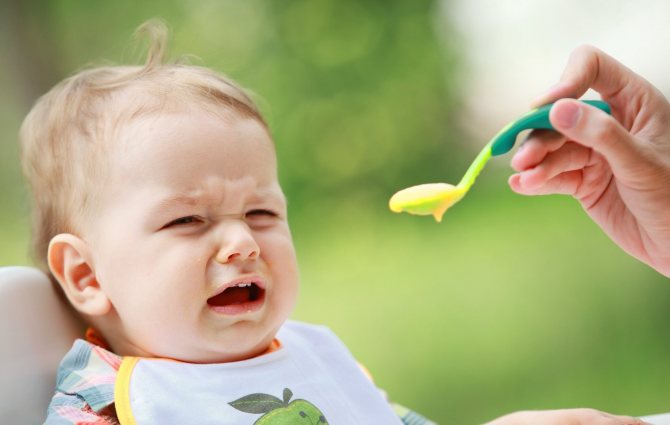
On the other hand, the sufferer himself can try to benefit from his condition by asking for candy or cake. The answer is to master your parental instincts and gently but firmly explain that putting any food into the stomach of a person who is vomiting can trigger another attack.
Drink actively, plentifully and even against desire
The younger the child is in age and weight, and the more strongly he vomits, the faster exicosis occurs (that is, dehydration) - a condition dangerous to the health and even the life of the baby. To prevent it, it is necessary to ensure that the body receives clean drinking water and salts, which are inevitably lost during vomiting.
What can you give your child to drink? The most preferred group of products are powdered pharmaceutical products for oral rehydration with sodium, potassium and other substances in specially selected proportions: “Rigidron”, “Humana Electrolyte”, “Glucosolan”, etc. These drugs are recommended to be taken without a doctor’s prescription for poisoning, heat and sunstroke, allergies, fever, so it is highly advisable that they are always in the first aid kit.
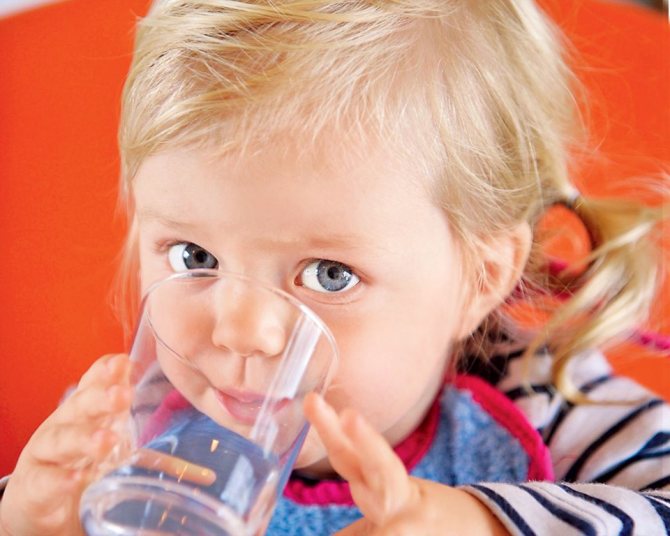
If you don’t have ready-made powder, you can prepare the following mixture at home:
- 2 tbsp. l. Sahara;
- 1 tsp. salt;
- 1 tsp. baking soda.
It should be dissolved in a liter of boiled water and given to the child during pauses when he is not vomiting.
An alternative drink can be dried fruit compote, rosehip decoction, weak tea, or even just drinking water. The main thing is not to give a large amount to drink at once, otherwise the child will start to feel sick or vomit again. The approximate amount drunk per day depends on the baby’s weight and is about 1 liter for a six-month-old baby, 1–1.5 liters for a child from 1 to 2 years old, 1.5–2 liters for older children.
At some point, they begin to be capricious and refuse to drink, but parents need to find the words and convince their child to continue treatment. You can change the drinks to those that he likes best, you can pour them into beautiful glasses and cups, give him cocktail straws, motivate him to buy toys - whatever you want, as long as the child drinks. To prevent him from vomiting liquid, the volume of what he drinks at a time should not exceed 5–15 ml (1–3 tsp). Frequency of administration: every 5–10 minutes.
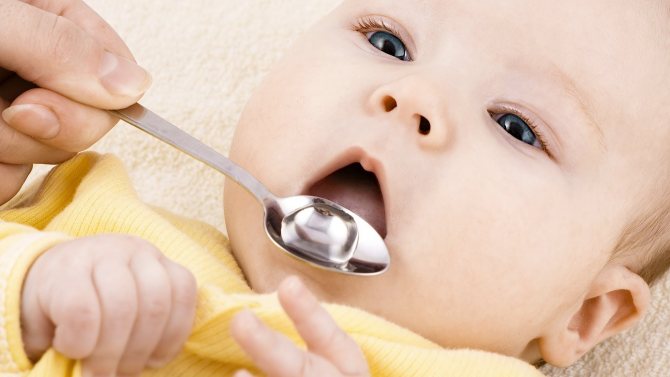
If the temperature rises, take an antipyretic
Your home medicine cabinet must contain two types of medications with an antipyretic effect: paracetamol and ibuprofen. Please note that these are active ingredients, while commercial names may differ: “Volpan”, “Dolomol”, “Efferalgan”, “Nurofen”, “Iprene”, etc.
If a child is constantly vomiting, it is preferable to give him the drug in the form of a rectal suppository, but keep in mind that it will show its effect more slowly. To provide faster assistance, liquid forms are optimal - syrup, drops, suspension. Before use, make sure that these are pediatric dosage forms and read the instructions carefully.
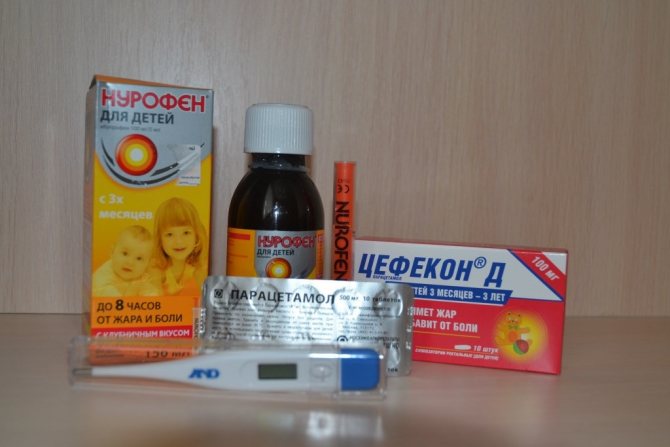
If there is a suspicion of poisoning, give sorbent
Diarrhea connected to the main symptom is a signal that toxins may have entered the child’s stomach, and they should be neutralized with the help of enterosorbents: “Smecta”, “Enterosgel”, activated carbon (can be sold under the names “Carbomix”, “ Belosorb", "Carbolong", etc.).
Treatment
Your main task is to remove harmful toxins from the body of a small child. Of course, the body itself does part of the work, getting rid of harmful substances through vomiting, fever, sweating and other manifestations, but you must help it with this.
Antiviral and immunomodulatory drugs that enhance immunity and destroy viruses are ideal. You should also replenish fluid loss, otherwise the baby will face dehydration, which poses a danger not only to his health, but also to his life.
It is better to drink purified water, tea or natural juice; you should give up dairy products and fatty soups for a while. When the problem with vomiting is resolved, you can gradually return to your previous diet, but now all efforts should be directed toward restoring the body.
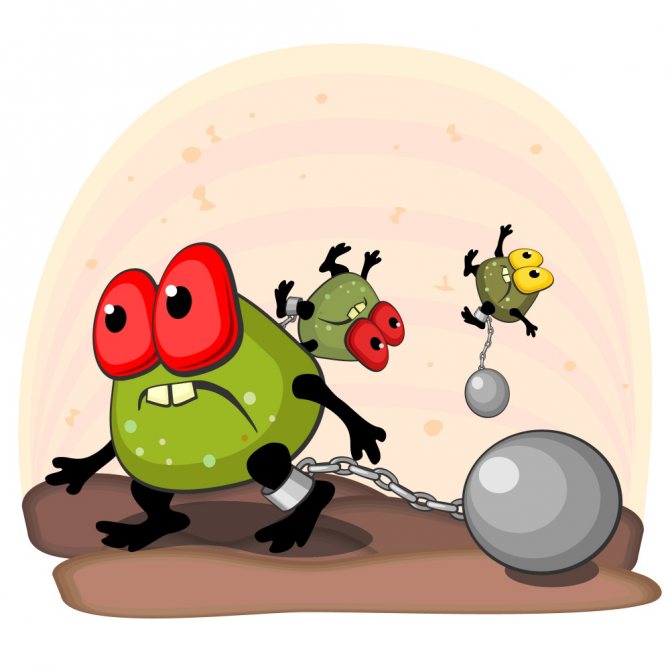
Don’t be afraid if a similar situation happened to your child, try to support him and convince him that this will soon pass. Vomiting during ARVI is an unpleasant phenomenon, but with proper treatment it goes away as quickly as it appears, so a lot will depend on you.

Published: October 20, 2018
Acute respiratory diseases often occur in children of preschool and primary school age. Acute respiratory infections are accompanied by various symptoms: fever, runny nose, cough, sore throat and sore throat. In some cases, the disease affects not only the respiratory tract, but also the digestive tract. This leads to nausea and vomiting.
Treatment of vomiting

Treatment for vomiting should only be prescribed by a doctor
Depending on the disease, treatment may include nutritional correction, diet, drug therapy, physiotherapeutic procedures, spa treatment, and the help of a psychotherapist. In some cases, surgery is required.
Vomiting cannot exist on its own - it is always a consequence of an adverse effect on the body or a pathological condition. But you can and should learn to distinguish vomiting during a dangerous disease from a physiological state characteristic of a particular age or situation.

Vomiting in a child is an indicator that something is happening in his body. However, figuring out what exactly caused the vomiting is not so easy. This is especially difficult to do when there are no other symptoms, such as fever and diarrhea.
The main thing to remember is that vomiting is not a diagnosis, but only a symptom. This means that its reasons may be different. Therefore, the first thing to do is to understand the reasons.
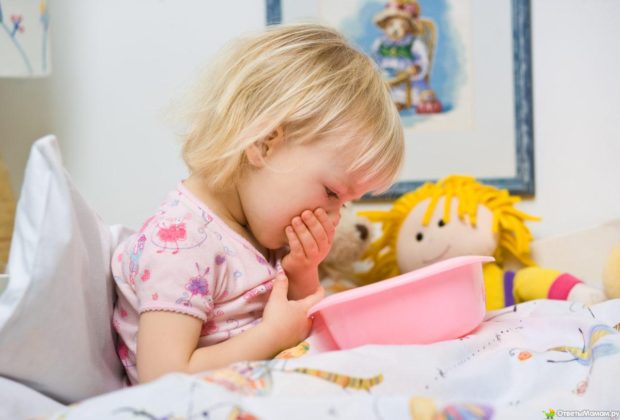
Vomiting in a child requires identifying the cause
How to deal with bouts of vomiting?
Many people know how to cure cough and runny nose due to acute respiratory infections. But what to do if a child is vomiting? The main thing is not to panic and immediately call a doctor at home. Based on the results of the examination, the doctor will make a diagnosis, determine what caused the deterioration in health and prescribe effective treatment.
Proper nutrition plays an important role in stopping vomiting. The diet of a sick child should be as gentle as possible so as not to overload the stomach and soothe irritated mucous membranes. During the acute period of acute respiratory infections, it is recommended to feed children semi-liquid rice and buckwheat porridge cooked in water. When the vomiting stops, you can include in your diet:
- boiled milk diluted with water,
- children's curds,
- natural yoghurts without additives or dyes,
- boiled vegetables - carrots and broccoli,
- fruits - bananas and baked apples,
- vitamin drinks - rosehip decoction, berry juice, dried fruit compote.
In order not to provoke vomiting, you need to exclude from the diet:
- fish, meat and sausages,
- sweets, bread and pastries,
- semolina, pearl barley and wheat porridge,
- semi-finished products
- fruits and vegetables that have not undergone heat treatment,
- butter and vegetable oils,
- carbonated drinks.
It is important to monitor compliance with the drinking regime, because... With vomit, the body loses a large amount of fluid. To avoid dehydration, it is necessary to give the child warm still water, decoctions of rose hips, dried apricots, prunes, dried apples and pears.
Treating acute respiratory infections correctly
Single vomiting due to acute respiratory infections in a child does not require special therapy. If there is severe loss of fluid, the doctor may prescribe medications to replenish the water-salt balance. However, in general, the efforts of the doctor and parents should be aimed at combating pathogens. In the complex treatment of colds, specialists use Derinat. It acts in several directions at once:
- destroys viruses
- strengthens cellular and humoral immunity,
- restores damaged nasopharyngeal mucosa and prevents germs from penetrating the protective barrier,
- reduces the risk of secondary infection.
Mother's care, proper nutrition, following doctor's orders and taking Derinat in accordance with the instructions will help the child overcome acute respiratory infections. Take care of your loved ones and be healthy yourself!
Read more about the drug on our website.
Vomiting during ARVI in a child is a rather serious symptom that requires immediate medical attention. You cannot independently prescribe medications to your baby, which can lead to a worsening of the condition and the development of a number of negative consequences, including death.
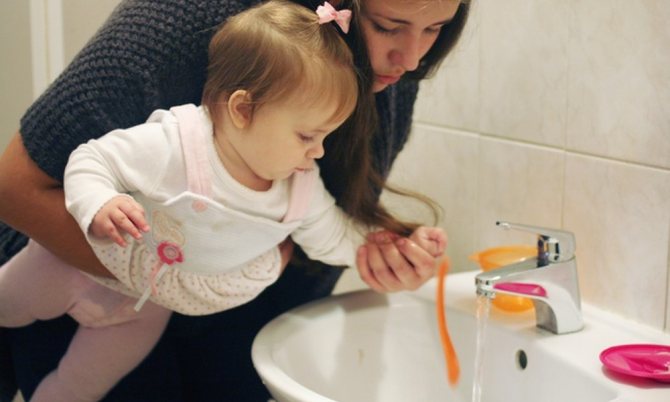
Causes of vomiting during ARVI
Vomiting can occur due to several reasons:
- The presence of infection in the gastrointestinal tract.
- Food poisoning.
- Prolonged stress, chronic fatigue.
- Foreign objects in the body.
- Disturbances in the functioning of the digestive organs.
Also, nausea and vomiting can be unpleasant signs of intoxication during the development of an acute respiratory viral infection. The phenomenon in question, which occurs at increased temperatures, can signal the occurrence of various pathological processes in the body. This is due to the proliferation of pathogenic elements in the blood, which negatively affect the protective qualities. In addition, the virus penetrates the central nervous system, causing general weakening of the body and fatigue. Then poisoning of internal systems and organs occurs.
A single vomiting during ARVI in a child can develop due to high body temperature or a sudden increase in its indicators. With the help of this unpleasant phenomenon, the human body tries to get rid of the decay products of pathogenic bacteria.
Vomiting without fever in a child aged 1-2 years
The younger the child, the more dangerous vomiting is for him, as dehydration may occur, which can be fatal for children.
Vomiting accompanied by diarrhea in the absence of fever in a 1-2 year old child most likely indicates food poisoning. When vomiting, parents of such young children need to closely monitor the baby, as vomit may enter the respiratory tract.
In addition to poisoning, vomiting without fever in a child can be caused by:
- stressful situations;
— pathologies of the digestive system, pancreas or liver;
- taking certain medications;
- overfeeding or improper diet;
- allergies to any products;
- sudden climate change;
- overwork;
- intestinal infections.
In most cases, vomiting in children begins at night. The baby wakes up from severe nausea. In this situation, it is important not to be scared or confused. Parents' actions should be calm and confident.
Symptoms of intoxication
Intoxication occurs when harmful compounds accumulate in the body, which is inherent in banal poisoning.
Signs of intoxication include:
- The appearance of nausea and vomiting.
- Increased sweating.
- Dizziness, cardiac dysfunction, unstable blood pressure.
- Dehydration.
- The occurrence of high body temperature.
- Lethargy, depression.
- Headache, feeling of heaviness in the head.
- Stool disorder.
- Exacerbation of kidney and liver diseases.
- Muscle and joint pain.
- Restless sleep.
The appearance of nausea during influenza in infants can provoke kidney failure and lead to coma/death, since any poisoning places an excessive burden on the liver and kidneys, which are responsible for removing toxic substances from the bloodstream.
What to do if vomiting occurs?
If nausea develops during ARVI in a child, it is necessary to provide him with bed rest and call a doctor at home. It is necessary to monitor the drinking regime, since flu with vomiting provokes dehydration, which is a serious complication. As a liquid, you can use fruit drinks, rosehip decoction, warm tea, mineral water without adding gases, cooled boiled water with the addition of lemon or honey. The drink should be drunk in small sips. In this case, you need to temporarily stop eating food and begin treatment (prescribed by your pediatrician).
Medications
Intoxication and nausea should be eliminated with medications. To do this, the doctor may prescribe:
- Medicines with a diuretic effect to cleanse the kidneys and liver.
- Antidote drugs, the action of which is aimed at neutralizing toxic compounds.
- Medicines to restore water-salt balance in the body.
- Laxatives that help cleanse the intestines.
- Adsorbents that also remove harmful elements from the body.
In some cases, for ARVI with vomiting, lavage of the stomach, intestines, skin, and mucous membranes is used. Oxygen therapy is used to make breathing easier.
ARVI with vomiting in children is considered a dangerous condition. Therefore, it is very important to consult a doctor when the first signs develop to prescribe the necessary treatment.
Folk remedies
Traditional antiemetic drugs include:
- Dill decoction. To make the drink, you need to add 0.25 liters of boiled water and 1 teaspoon of dill seeds. Keep the mixture in a water bath for 10 minutes, then filter and cool. Take in small sips after each bout of vomiting.
- Ginger drink. To prepare the medicine, a piece of ginger root should be peeled and crushed using a grater with small holes. Pour the resulting mass into 1 tbsp. boiling water Cook in a water bath for a quarter of an hour. Next, strain the liquid and cool. Use 1 tbsp. l. every 30 min.
- Infusion of mint leaves. Pour boiling water over the raw materials and leave for ½ hour. Take the resulting medicine when vomiting and flu, 2-3 tbsp. l. once every 3 hours
- A mixture of milk and egg. The chicken yolk must be thoroughly beaten, then mixed with 0.1 liter of low-fat milk. Drink the resulting mixture 1 teaspoon every 60 minutes.
- Infusion of horsetail. Pour a couple of teaspoons of prepared raw materials into 0.2 liters of boiling water. Leave for a third of an hour to infuse. Drink in small sips.
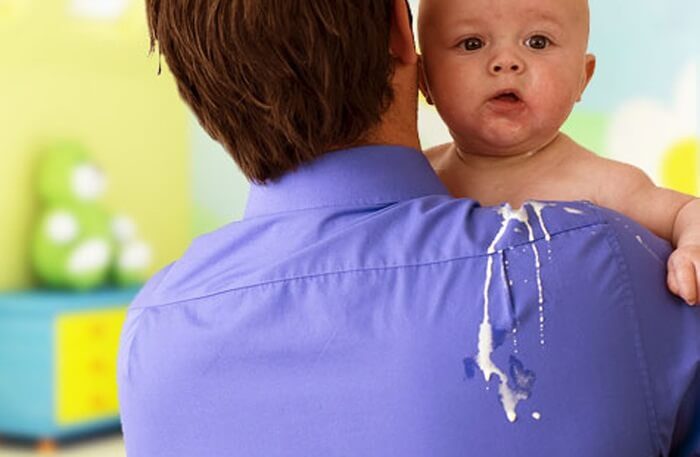
Alternative medicine can be used only if the urge occurs infrequently and there is no blood or bile in the vomit.
Nausea during colds in adults and children: causes, treatment
Colds or flu are one of the most common respiratory diseases that primarily affect the upper respiratory tract. Often during illness, people begin to suffer from nausea and vomiting.
In such cases, doctors advise consulting a doctor and at least undergoing an examination and consultation.
Nausea during a cold may indicate a number of other pathologies. If the cause is not identified promptly, the patient may experience complications that will require longer and more expensive treatment.
Intoxication in respiratory diseases
Viruses that cause respiratory diseases usually enter the human body through airborne droplets and begin to multiply on the mucous membrane of the respiratory tract, sometimes in the digestive tract or eyes.
At the next stage, the pathogen enters the bloodstream.
As the immune system fights a respiratory infection, a large amount of toxic substances accumulate.
If they are not eliminated through the liver and kidneys in a timely manner, a person may begin to vomit, and the following symptoms of intoxication may appear:
- weakness;
- pale skin;
- aching joints;
- increased sweating and fever;
- headache;
- sleep disturbance;
- bitterness in the mouth;
- lack of appetite;
- dizziness.
Severe intoxication often leads to:
- cerebral edema;
- sudden changes in blood pressure and heart rate;
- blood clotting disorders;
- breathing problems;
- cramps.
Parents of young children mostly turn to doctors with the question of whether it is possible to feel sick with a cold. This symptom manifests itself more often in them, since the child’s body is more difficult to tolerate the effects of toxins.
Intoxication can cause great harm to women in the first trimester of pregnancy, when the fetus is forming. In approximately 20% of cases, a miscarriage occurs.
Causes of nausea and vomiting during colds and flu
The answer to the question of why you feel sick and vomit during a cold is quite simple. This occurs due to the fact that toxic breakdown products accumulate in the body, which appear as a result of the immune system fighting the virus.
If the disease begins to progress, nausea during ARVI is explained by infection of the nervous system, which can subsequently affect the functioning of internal organs. In addition to vomiting, this is indicated by dizziness and general loss of strength.
Note! The cause of nausea and vomiting during colds is a disruption of the body’s autonomic nervous system.
Some people, even with severe intoxication, do not experience nausea at all, but this does not mean that the body is functioning normally. If there is no vomiting, intoxication can provoke another problem - diarrhea, but it usually lasts no more than 4 days.
Treatment of nausea and vomiting due to colds
To alleviate the patient’s condition during intoxication, doctors use complex treatment. It will help relieve the symptoms of poisoning and rid the body of infection.
But before prescribing any drugs, the doctor must examine the patient, find out how often he vomits with the flu, and take into account possible concomitant diseases.
General principles
The first stage of treatment removes toxins from the body. To do this, the patient is advised to drink as much water as possible throughout the day. By observing the drinking regime, you can not only fight intoxication, but also restore the strength lost during illness.
Water helps to liquefy and remove mucus accumulated in the respiratory tract; this is especially important if the patient has been diagnosed with pneumonia. Also, do not forget about dieting.
All dairy products should be excluded from the diet. Food should be light and portions should be small. If you fulfill at least these simple conditions, vomiting during ARVI will soon disappear.
Medicines
To combat the virus, the patient is prescribed antiviral drugs to eliminate the main cause of the poor condition, and to reduce the intoxication that causes vomiting during a cold, drugs with active ingredients such as methyl silicic acid hydrogel or silicon dioxide are prescribed.
The easiest option is to drink activated carbon. The action of medications should be aimed at reducing the intensity of symptoms and getting rid of the main cause of the disease.
Doctors often prescribe medications containing vitamin C. If the patient is in a hospital, to more effectively remove toxins from the body and prevent dehydration, a drip with a glucose solution is placed.
Immunomodulators that stimulate the production of interferon are also used to combat the disease.
Folk remedies
Nausea with the flu can be treated quite well with the help of folk remedies.
To do this, you can use the following recipes:
- To prepare the decoction you will need rose hips, raspberry leaves or linden blossom. The ingredients should be brewed in a container and taken no more than three times throughout the day, 100-150 milliliters each;
- to reduce the severity of the disease, it is necessary to consume fruits and berries with a high content of vitamin C. Lemon, black currants, oranges and tangerines are best suited for such purposes;
- To quickly remove toxins from the body, you need to prepare an infusion of mint, chamomile, calendula and St. John's wort leaves. You need to take about half a glass of this mixture of herbs and pour boiling water over it. Leave for at least 10 minutes. Afterwards, the infusion should be brought to a boiling state and used for inhalation;
- To prepare one of the most effective cold remedies, you should chop 250 grams of pine nuts, add 3 large spoons of honey and orange pulp. All this is mixed and taken 1-2 tablespoons at least 5 times a day;
- to restore water balance, it is recommended to drink still water, green tea with citrus fruits and honey, rosehip infusions, and berry juice. It is advisable to drink warm water so that the body absorbs it faster.
During the treatment process you will have to radically change your diet. First of all, it is necessary to support the functioning of the immune system. It is worth giving up spices and fried foods. Oatmeal with water, lean meat broth, and steamed vegetables will be beneficial.
During this period, a person should sleep and rest more. Physical activity and work will have to be postponed until recovery. Only after the symptoms disappear and the body begins to recover can you begin to do light exercises in the morning.
If during intoxication the patient suffers from nausea and vomiting, it is necessary to remove toxins from the body as quickly as possible. To do this, you need to drink 2-3 liters of water, and also take a sorbent and a diuretic.
Before using one of the traditional methods of treatment, it is better to consult a doctor. A person must be sure that no tinctures or decoctions will cause an exacerbation of chronic diseases or an increase in the intensity of symptoms.
Nausea and vomiting due to colds in children
If a child vomits during a cold, he should not be given any medications for at least 2 hours. The child's body needs to be given a little time to recover.
The parents' task is to ensure that the baby does not make sudden movements, otherwise this may provoke repeated bouts of vomiting.
Important! You cannot feed your baby for at least 6 hours. But the baby can drink decoctions of chamomile, mint or lemon balm. You should start giving food in small portions. These should be steamed dishes or light broth.
If vomiting is accompanied by stool problems, preventive measures will have to be taken to prevent dehydration. Doctors usually prescribe in such cases plenty of fluids and solutions of glucose, sodium chloride and potassium chloride.
If nothing helps stop the vomiting, parents should call a doctor immediately.
Finally
After an acute viral infection, which was accompanied by complications in the form of vomiting, secondary bacterial or fungal diseases may develop due to a weakening of the body's protective functions.
To avoid such problems, it is necessary to closely monitor the patient’s condition and prevent the development of complications.
If the cause of vomiting is a high temperature, it must be brought down urgently. To do this, it is recommended to use suppositories or rubdowns, since taking medications orally can cause a new attack of vomiting.
Source: https://respiratornie-bolezni.com/prostuda/prichiny-toshnoty-i-rvoty-pri-prostude-u-vzroslyh-i-detej-sposoby-lecheniya.html










